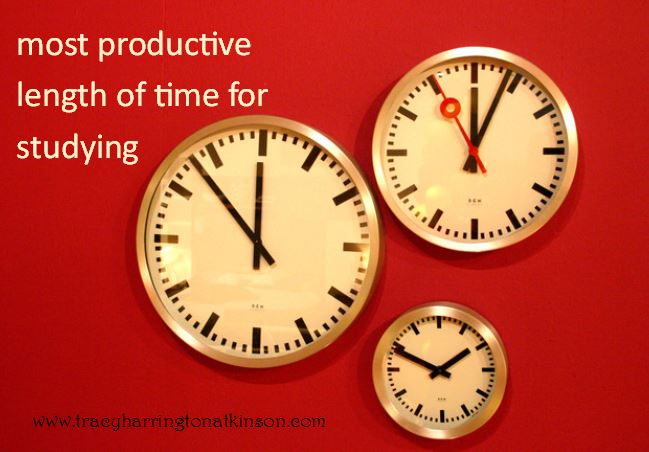 Studying for long periods time has proven to be most ineffective and yet students persist in this long held tradition as if they were acquiring a badge of courage. Many times, I have sat in a common area on campus and listened to students mourn (and brag) over the long hours they studied in preparation for a test or working on a project.
Studying for long periods time has proven to be most ineffective and yet students persist in this long held tradition as if they were acquiring a badge of courage. Many times, I have sat in a common area on campus and listened to students mourn (and brag) over the long hours they studied in preparation for a test or working on a project.
“I was up all night working on that project.”
“I was in the lab until the sun came up.”
“I never did get to bed.”
Their lamentations are not badges of courage to those who teach and promote student success. They are merely follies of a lack of preparation, coordination and planning based on a good plan which works for your learning style. Experts vary on their advice or the best length of time to study from an hour to 20 minutes. Yet, the best amount of time is the quantity which works best for you. To figure out your effective time span, ask yourself:
- Do I accomplish more at a specific time of day? Morning? Afternoon? Evening?
- Do I study best with distractions?
- How much time passes while I am studying before I start getting antsy or lethargic?
- Do different subject matters require different study lengths? For instance, can I read for longer time amounts than I can write a paper?
- What is the best studying position? At a desk? Sitting at a table? At a chair with a laptop propped up on your lap?
- What lighting works best for you?
- Are there specific times of the day when your environment is more conducive to studying?
As you ponder on each of these questions, keep a record. You don’t need to create a fancy workbook, journal or dedicated page in your planner! Simply jot down a few notes on a Post-it and track your efficiency for a period of time. I tracked my efficiency for two weeks. During this time, I recorded my impressions and realizations on Post-its and 3×5 cards. At the end of the two weeks, I read through everything I had recorded. Here’s what I learned:
- My most efficient study/learning times are early morning and early evening, but my best inspiration and ah-ha moments come when I am driving or just before falling asleep when my mind is less distracted.
- I prefer to learn at a table for some activities -like writing -and in a chair for other activities -like studying from a text.
- I retain very little when I have distractions.
- I prefer natural light -but I do not study well outside. I am quickly distracted by everything.
- I prefer to study in 20 to 30 minute increments. Then I take a break to rejuvenate myself.
What kinds of breaks are the most effective in resetting my mind? Again, I did the same exercise. I tracked which items were most helpful in getting my mind to relax and refocus on the task at hand. I prefer to get a change of environment. I move around. When at home, I will walk my dog -a quick walk around the block or do a short household responsibility -like rotating laundry. A quick snack helps -my favorite being apples with peanut butter and honey on them. Sometimes a change of scenery. I will just get up and move to another chair.
Other ideas:
- Make a change of environment -study in a library, outside, etc.
- Get off campus or out of the house.
- Make a mental change of scenery -read a magazine, novel, etc.
- Check out social media. (Set a timer so you don’t get too carried away!)
- Exercise.
- Find a stress relief.
- Get a snack or drink of water.
- Applaud yourself for what you have already accomplished.
What other ways have you found to take a study break?


Comments are closed